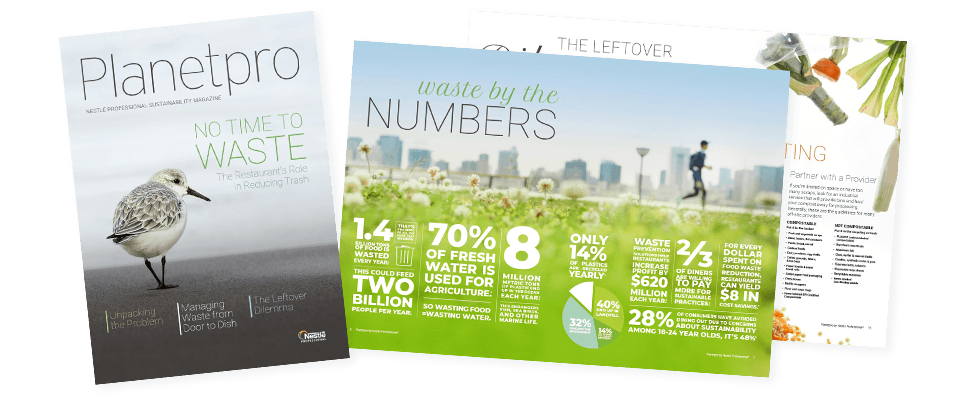
- Trends & Insights
- Sustainability
Planetpro: No Time to Waste—Choosing More Sustainable Ingredients
Certain types of food place more strain on the environment due to their water or land requirements, carbon footprint, agricultural chemicals, biodiversity concerns, or other environmental pressures.
While you probably don’t want to remove all of these foods from your menu, it is good to understand their impacts and choose ingredients thoughtfully so you can avoid wasting limited resources.
Produce
Fruits and vegetables can vary widely in terms of environmental impact, so consider the tradeoffs when choosing ingredients. Produce grown far away also requires more transportation fuel and refrigeration to stay fresh during shipping, while locally grown produce can go from farm to fork with a lower environmental footprint, if produced by responsible suppliers.
Fish
Certain organizations, such as The Seafood Watch, publish lists to help businesses and consumers choose fish and seafood options with the least impact on marine life and the environment. Recommendations vary by location.
Meat/Poultry
The carbon footprint of animal protein can vary widely, with beef and lamb contributing the most greenhouse gases and requiring the most land, water, and feed.
